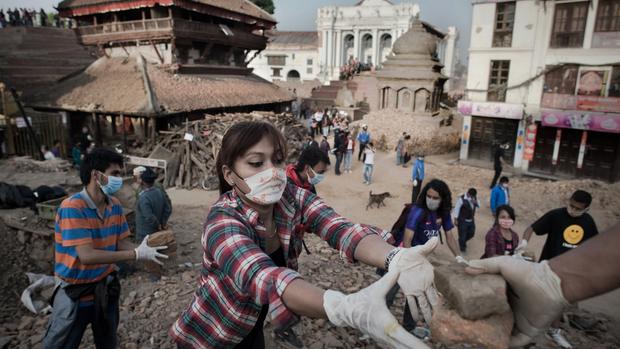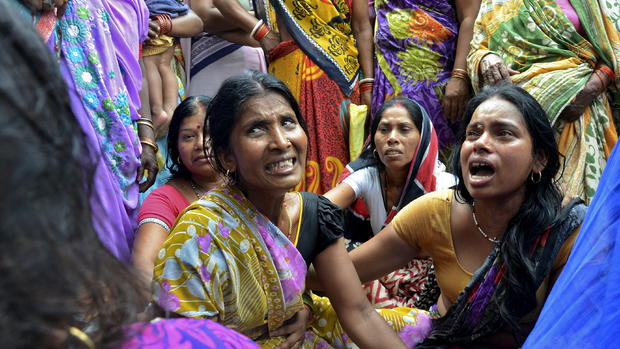Is Nepal quake triggering temblors in other regions?
Days after the deadly Nepal earthquake, Papua New Guinea in the South Pacific was hit by two major quakes of its own, including one that measured 6.8 magnitude. Though powerful, they caused little damage in a sparsely-populated area.
But are all three events related?
Most seismologists say there is no reason to believe that the 7.8 quake in Nepal, which killed more than 6,300 people, triggered seismic activity beyond the Himalayas.
Ryan Gold, a research geologist at the United States Geological Survey, told CBS News there is no evidence connecting the quakes in Papua New Guinea and Nepal - which are, after all, almost 5,000 miles apart. The two places are on top of different tectonic plates.
"When there is an earthquake, it stresses some faults and un-stresses other faults in the region proximal to the earthquake," Gold said. "But over large distances such as thousands of miles, we don't have a strong physical basis for the triggering of remote earthquakes."
Larry Ruff, a seismologist at the University of Michigan, agreed. "The idea that an earthquake can trigger other earthquakes in other parts of the world is an old idea has been thoroughly researched and discussed by seismologists," he said.
"The bottom line? You cannot, repeat not, prove it for any single occurrence," he said. "Thus, the scientific argument becomes a statistical argument - and immediately becomes tedious with some always boring conclusion."
Ruff said triggering, as its known in seismological circles, may have occurred - but if so, it's more likely that an earlier, 7.5 magnitude earthquake in Papua New Guinea in March led to the temblors there this week.
"If you want to prove that they were triggered by the Nepal earthquake, you would first have to prove that they are part of the aftershock sequence of the earlier large Papua New Guinea earthquake - no one would even bother trying to do that," he said.
Papua New Guinea, like Nepal, is a part of the world that routinely experiences decent-sized quakes, and the timing is likely just a coincidence.
"In a typical year, there are about 52 earthquakes [worldwide] with a magnitude of 6.5 or larger, i.e. about one a week," Ruff said. "But given the expected gaps and clusters in a random sequence, there's no surprise in having multiple events in one week - especially if they are part of the aftershock sequence of earlier larger earthquakes."

